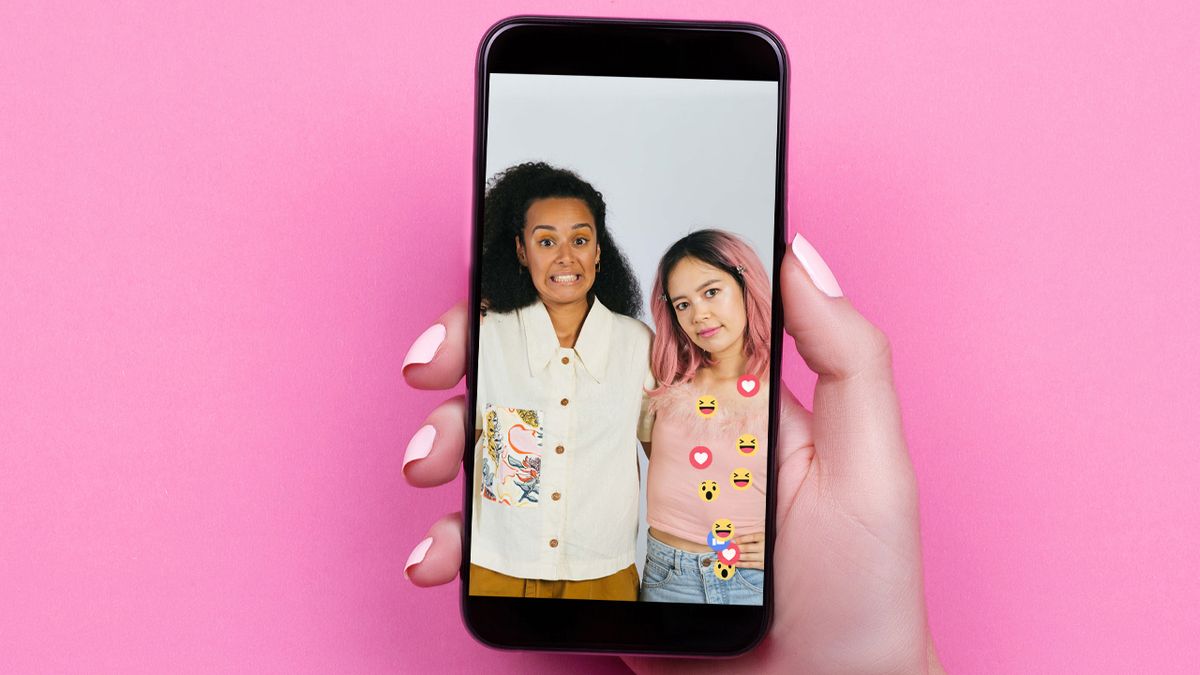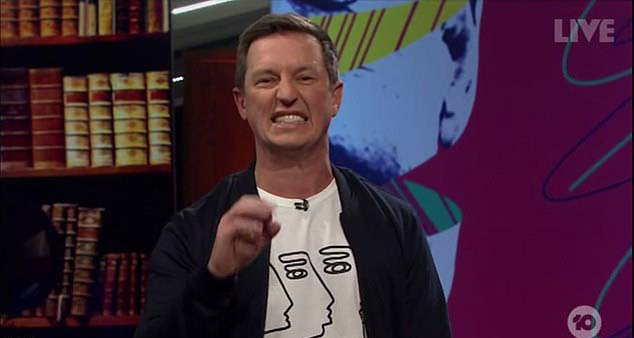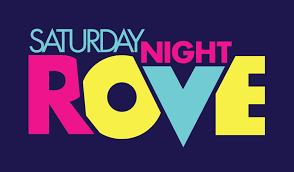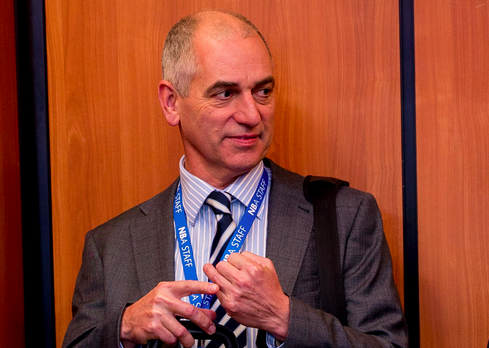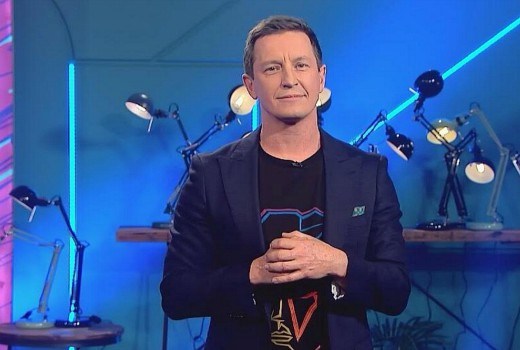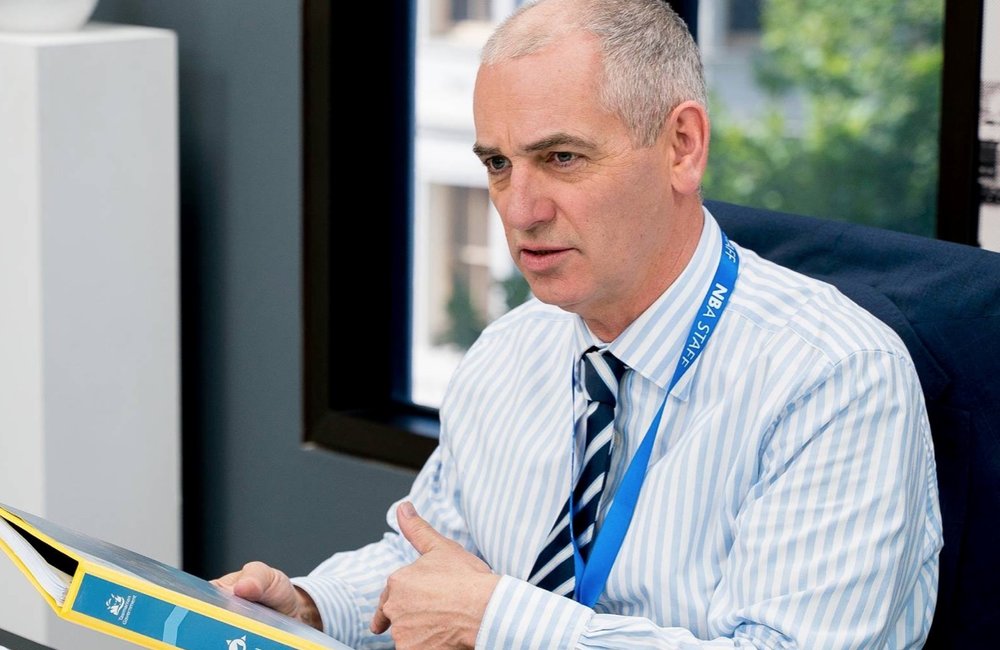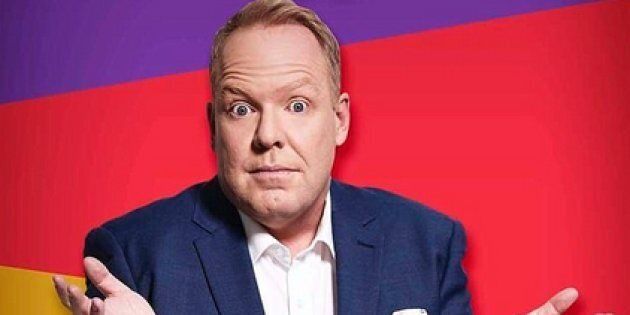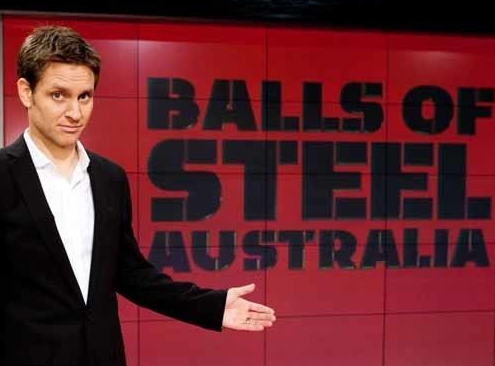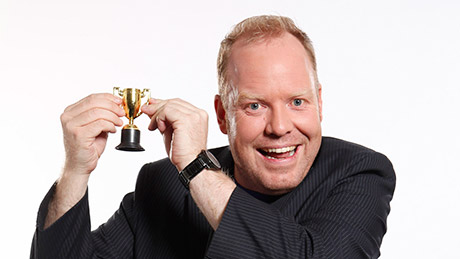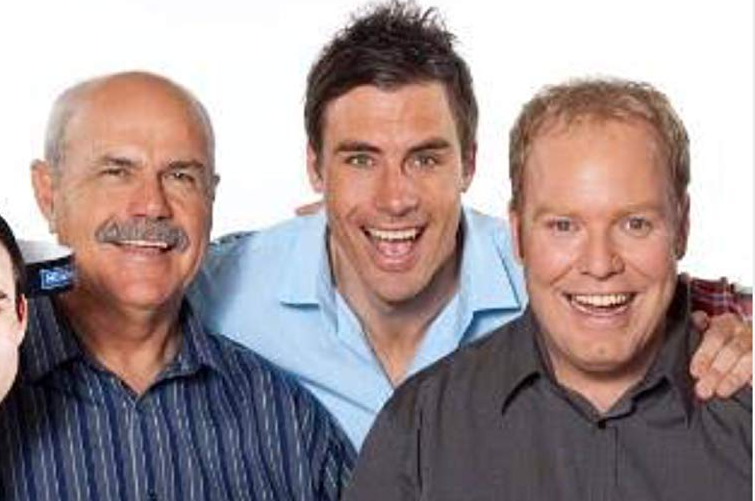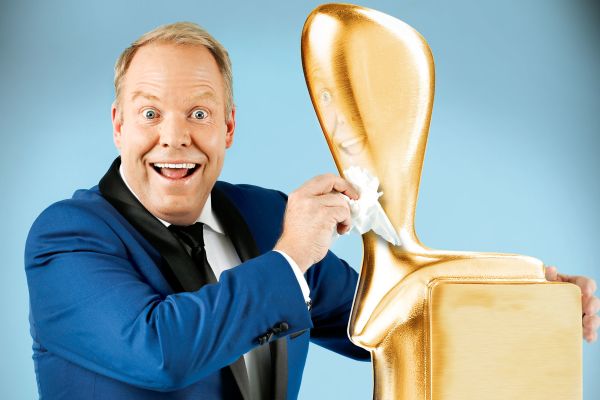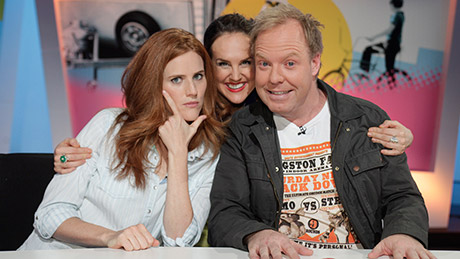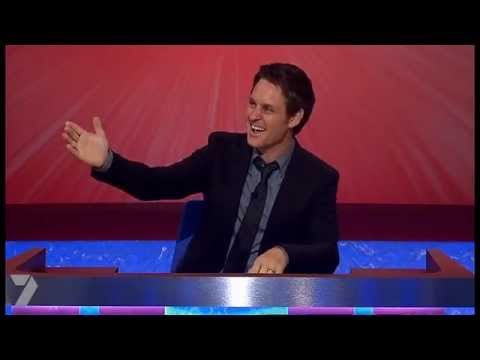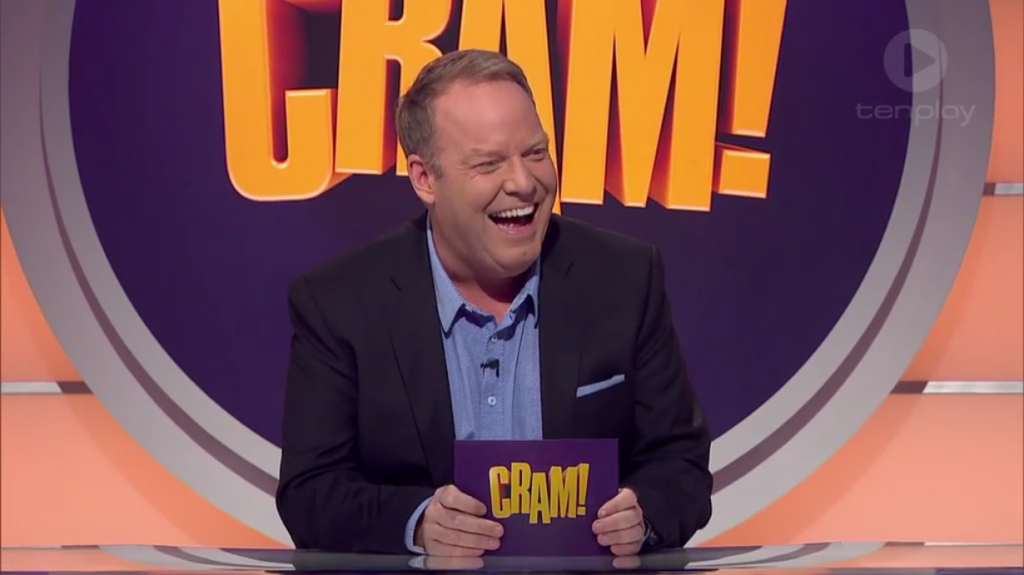Australian Tumbleweeds
Yah Chasin’, mate
Remember when The Chaser were funny? Yeah, we’re struggling too. At least now there’s social media to tell them when they’ve fucked up, because clearly they can’t tell themselves.
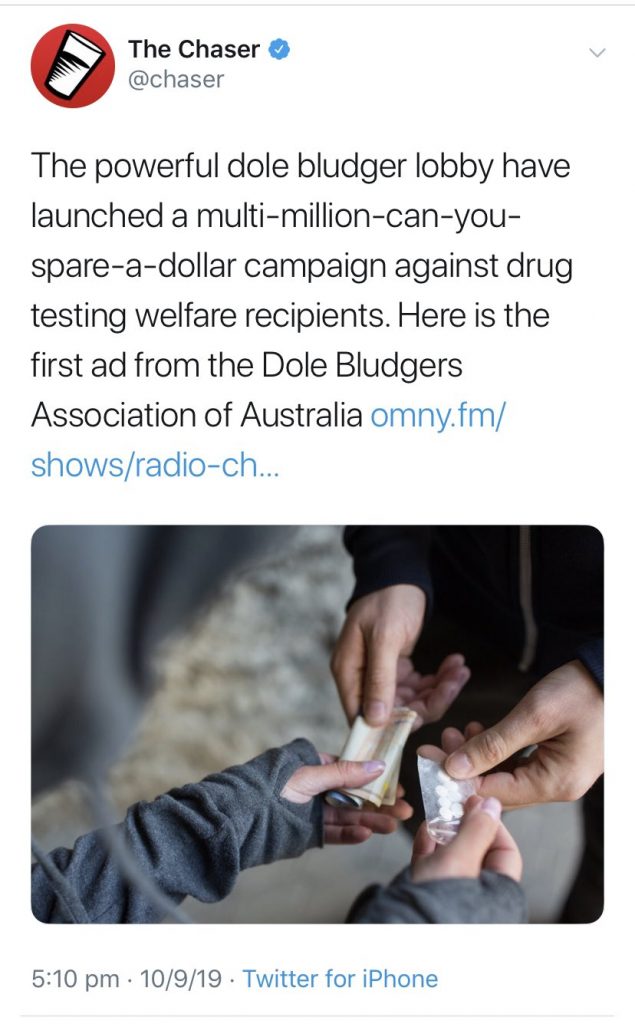
It’s the first ad from the Dole Bludgers Association of Australia, and we’re guessing it’s going to be the last: this was taken down sometime last evening after, well, pretty much everyone who heard it got on twitter to give it and The Chaser a good kicking.
In other words, we're sorry. https://t.co/VQZfn4OZx9
— The Chaser (@chaser) September 10, 2019
And a good kicking it deserved. Not necessarily because it was “punching down”, but because it was shit in concept and kak-handed in execution. Basically it was 40-odd seconds of a junkie voice whining that if people stopped taking drugs they’d be boring arseholes like Scott Morrison. Oh ho ho ho.
Like, there’s the faint outlines of a joke here. “Drugs are good because they stop you being like Scott Morrison” is not the most absolutely stupidest view you could express in a comedy bit. “What if the last group you’d expect made a political commercial?” is a reasonable starting point for comedy. But the bit was just rubbish – it wasn’t even a decent excuse to do a comedy junkie voice, and if you can’t make junkies funny you need to get out of comedy now.
Of course, The Chaser are absolutely the last people who should be making any jokes at all about junkies. It’s not that they all come from Sydney private schools* because quite possibly some of the people they have writing for them don’t; it’s because the attitude spread across all of their comedy for a number of years now has been 100% entitled Sydney fuckwit and it hasn’t done their material any favours at all.
“Every weekday lunchtime join original team members Charles Firth and Dom Knight for a daily radio programme with the characteristically unpredictable Chaser shenanigans”. But at this stage they’re not “characteristically unpredictable”; they’re bland, vaguely right-wing in their underlying assumptions about society, and way less funny than they should be considering all the decades of well-paid practice they’ve had.
This wasn’t a case where a sketch “went too far” and offended a bunch of knee-jerk lefties who hate laughter; this was a shit sketch that didn’t even know what it was trying to say, let alone where the joke it wanted to make was. The Chaser shouldn’t apologise because they accidentally supported the governments views; they should apologise because they wrote, performed, and put to air a sketch so muddled and amateurish that even regional primary school community radio would have said “yeah, maybe not”.
That said, if you can’t tell the difference between mocking a right-wing government’s attitudes and endorsing them until after you’ve put a frankly shithouse sketch out into the world, then maybe it’s time to give up comedy entirely and start submitting your sketches straight to Quadrant.
*okay, Craig Reucassel went to a public school… in Bowral, which as Wikipedia points out, is “noted for its boutiques, antique stores, gourmet restaurants and cafés”
We shouldn’t be content with Content
There’s been a lot of buzz about the ABC’s vertical video comedy series Content, in which Brisbane millennial Lucy (Charlotte Nicdao), a wannabe celebrity and social media influencer, crashes her car in the middle of a Facebook Live.
And fair enough too, a series about how we live our lives on our phones is of the moment – and showing it from the point of view of the phone screen is a pretty innovative idea.
Also, that car crash scene, on which the entire storyline hangs, is extremely well done. The fact that it alone seems to have gone viral, exactly like it did in the series for Lucy, says a lot about both the skill of the special effects artists and the makers’ understanding of what works on social media.
And yet, for a show billed as comedy we found ourselves not laughing a great deal. Perhaps that’s because actual social media has done the “OMG they just kept going” joke to death already, the Chinese woman who streamed herself eating a live octopus, for example. And once you get beyond the “OMG she’s still streaming even though she’s just had a car crash” moment…where are the laughs?
To be fair, there were a few moments in the lead-up to the car crash, where Lucy is reacting to an ex-boyfriend announcing his engagement or failing to find people willing to drive down to the beach with her, which are tragi-comic. But that’s pretty much it.
So perhaps the real comedy comes later in the series, once we get past the car crash and Lucy presumably achieves her goal of becoming a celebrity and social media influencer? Except, any comedy that does happen has to happen in a way that her phone screen can see it. Which presumably means a lot of funny things going on during Lucy’s live streams or more tragi-comic interactions on social networks.
Which is possibly where this series will fall down: you can’t do a scene as amazing as that car crash every episode. And once you’ve cycled through the fairly limited set of jokes you can do on a phone screen, that’s it, comedy-wise.
Maybe we’re missing something, here – for comedy’s sake let’s hope so – but in our experience, it’s never wise to build a comedy show around such a limiting premise. Comedy should be free to go anywhere and this show has imposed some fairly tight constraints on itself from the get-go.
Newsbreak!
It’s been a big week in comedy – well, it probably has been if you believe that story about Scott Morrison shitting his pants in a Sydney McDonalds in 1997 (our question: who would have recognised Scott Morrison – then an anonymous tourism executive – at a random McDonalds in 1997? Was it his mates who told everyone, in which case it’s even more unlikely because now the story relies on Scott Morrison having mates?) – but there’s also been a few moderately interesting announcements. Let’s go to the news desk!
Rebel Wilson to host Seven’s Pooch Perfect
Channel Seven today announced award-winning Hollywood actress and proud former junior dog handler, Rebel Wilson, will host its new competition dog styling series, Pooch Perfect.
The Hustle and Bridesmaids star grew up with many dogs and is excited to revisit the professional dog world in her new hosting role.
“My childhood was full of weekend adventures at dog shows all around Australia and my family had a business selling pet products out of a caravan – such as leads, treats and the best dog styling equipment available,” Wilson told 7NEWS.com.au.
After her big court win we can’t even begin to speculate on what kind of career development would take her from the dizzying heights of Hollywood to hosting a dog show on Channel 7. No really, it’s too risky. And it’s a “dog styling series”.
10 Australian comedians get Amazon Original stand-up specials
Ten Australian comedians, including Gold Logie-winning Tom Gleeson, Tommy Little and Judith Lucy, will star in their own Amazon Original stand up specials, Amazon Prime Video has announced.
The specials will be filmed in Melbourne in September and premiere exclusively on Prime Video locally and in 200 countries and territories worldwide in early 2020.
The full list of comedians with an Amazon Prime special includes: Lano & Woodley, Zoë Coombs Marr, Judith Lucy, Tommy Little, Anne Edmonds, Tom Walker, Celia Pacquola, Dilruk Jayasinha, Alice Fraser and Tom Gleeson.
We also believe Stan are currently filming their own stand-up specials (though we could be wrong about that), so it’s a new golden age for people who like stand-up comedy but don’t like leaving their house to watch it.
Bitter-sweet comedy FRAYED to hit our shores in October
FRAYED premieres Wednesday 16 October at 9:10pm on ABC and iview
The ABC is thrilled to announce the airdate of its delightful new (6×45’) tv series, Frayed, written by and starring celebrated Australian comedian Sarah Kendall and co commissioned by Sky (UK).
Produced by Merman (Motherland, Catastrophe) in association with Guesswork Television (Rosehaven, Please Like Me), Kendall’s painfully funny comedy also stars Kerry Armstrong (Seachange, Lantana), Ben Mingay (House of Bond), George Houvardas (Packed to the Rafters, East West 101), Doris Younane (Five Bedrooms) and Matt Passmore (The Glades, Satisfaction, McLeod’s Daughters) along with British talent Diane Morgan (Motherland, After Life) and the award-winning Robert Webb (Peep Show).
In 1988, Simone Burbeck’s (Sarah Kendall) life appears perfect. She lives in a mansion in London with her perfect husband and children (Frazer Hadfield and Maggie Ireland-Jones), and her life is a merry-go-round of expensive renovations, dinner parties and school fundraisers. There’s just one problem: it’s all lies.
When her husband has a fatal heart attack in a disastrous session with a prostitute, the true state of their finances is revealed. Simone is broke, homeless and a social outcast. With no other options, and two children to care for, she is forced to return to her family home in Newcastle, Australia. It turns out Simone’s past isn’t quite the story she told everyone in London. Nothing about Simone is what it appears to be. Oh, and her real name is Sammy.
Frayed is full of complex characters, dubious decisions and unfortunate events; and at its heart is the journey of one flawed family confronting their secrets and trying to find a way back.
Which is all well and good if you like what sounds like the kind of culture-clash comedy where both cultures come off second best (also, that 1988 setting is setting off alarm bells – wacky outfits ahoy!) and also where the comedy takes a back seat to “one flawed family confronting their secrets”, but for fans of Australian television this bit leapt out:
Frayed premieres in the UK on Sky One and NOW TV on 26 September.
So the UK gets it a full three weeks before we do? Sure, this probably isn’t a show that’s going to have people rushing to remember how to illegally download something, but it does seem to suggest the ABC is very much the junior partner in all this.
Which, considering how much the ABC seems to have riding on this one, also suggests that any decision about a second season is going to be very much out of their hands.
If Frayed, which stars UK-based Australian comedian Sarah Kendall as a wealthy London housewife who retreats to her Newcastle hometown after her husband dies in bed with a prostitute, resonates as strongly as [the ABC Head of Comedy] hopes, he is keen to do another season, but that would probably be for early 2021.
Tell your UK relatives to sign up for Sky now!
Vale Saturday Night Rove
Well, that was quick:
Saturday Night Rove has been axed on 10 after just 2 episodes.
It follows the show falling to just 138,000 viewers on Saturday after debuting to 244,000 the previous week. The lower numbers this week come despite no AFL or Cricket in the same slot.
Yet another addition to the proud tradition of live Australian comedy getting the chop after two (sometimes three!) episodes. As they used to say on Underbelly, it’s a jungle out there.
Obviously the quality of the show played a big part (the short version: it wasn’t good), but here’s a question: why Saturday night? Live television is expensive and risky, so why would you try it on the least-watched television night of the week?
Only kidding: we know exactly why. The tiny world of people who give a shit about what’s on our television screens is still somehow dominated by people who vocally demand a): a return of “variety” and b): Hey Hey it’s Saturday to magically restore their youth. So for some inexplicable reason – to us at least – there’s a constant low level hum out there of people wanting good old fashioned variety back on our television screens like it’s 1999. But only if it’s on a Saturday night.
Unfortunately for them, the reality in 2019 is that variety as they remember it is stone motherless dead; you want that back, it’s Australia’s Got Talent time. Variety is a product of a period when television had to be all things to all people – when an entire family would sit down to watch television and millions of families did that every night, of course a show that did a bunch of wildly different things could work.
Now? Everyone has their own screens with hundreds of viewing options available. What’s the point of a show rushing around trying to do a bunch of things half-arsed when you can watch something that does exactly what you like without the stuff you don’t? Sure, there are still a bunch of reason why people might want to watch television together as a family, but there’s a lot less of those group watching households and they’re watching Masterchef or The Block, not some average stand up and some mediocre pranks.
Obviously, if the show had been better it might have lasted longer. But how was it going to be better? Australia at the moment barely has any big name comedy drawcards; over a decade of dismissing and downgrading any show that could conceivably have generated new on-air talent has seen to that. Australian comedy now is basically shit dramedy stuff made by drama actors and writers aimed at Netflix, not showcases for local comedians who appeal to local audiences – and it doesn’t get more local than this kind of variety.
Perhaps a more traditional tonight show might have worked (but not on a Saturday night); perhaps a show hosted by someone who’s not Rove could have drawn in the crowds (good luck getting Hamish & Andy to host variety). Realistically, the only way “variety” could work on 2019 television is if it were to somehow become “event television” – the kind of show that people would have to watch because they know that everyone’s going to be talking about it the next day. And if that next day is a Sunday, that’s never going to happen.
Let’s not forget, the original point of variety was that it was cheap; networks already had the studios and the crew, acts were touring the country anyway and needed a way to promote themselves – all you needed to do was pay the host and away you went (this depiction of the television industry may not be 100% accurate). Now variety is competing with reality shows that are so packed with sponsorships they literally pay for themselves; they’re now the most expensive shows around, they appeal to the smallest audience, and what fans they do have keep demanding they be screened on the worst night of the week.
Kevin Rudd playing handball didn’t exactly help either.
Saturday Night Rove Fever
Is the best thing about Saturday Night Rove Judith Lucy’s sarcastic voiceovers over the crap bits of the show? Yes, of course, it is. Because nothing saves live comedy that’s dying on its arse like an experienced and much-loved legend of comedy letting rip with a bit of deprecating humour. Thank god she’s there, otherwise, this show would be a much harder watch.
And this is bearing in mind that last night’s episode was an improvement on week 1. It was pacier and tighter, they’d had the good sense to book a stand-up for do a few minutes – and to give Justin Hamilton something to do – and the pre-recorded stuff was a lot funnier as well. Ben Folds delivering bad news to people was a funny and clever twist on his inimitable style of music. More of that kind of thing, please.
The basic problem with Saturday Night Rove, though, is that the team hasn’t yet managed to produce quite enough good stuff to make this a decent commercial hour of comedy television. They may well get there, but not so far.
Which means they have to fill showtime by booking a widely-disliked former Prime Minister to play a few rounds of handball. Because that’ll be hilarious, right? Only if Judith Lucy steps in with a sarky voiceover it will.
And what is the deal with comedy shows thinking it will be hilarious to have actual politicians on their shows? Does no one remember how much funnier it was when Paul Keating refused to go bowling with Andrew Denton in the 90s?
Instead, Kevin Rudd puts out a tweet challenging all-comers to a game of handball, and TV and radio programs with time to fill jump at the chance. And what results? Rudd looks like a loveable, cuddly guy (which he isn’t) and everyone forgets all that stuff about the spill he lost, and the second spill and quickly-following election which he also lost, and the bullying he’s supposed to have done, and his legacy is assured. Or whatever his endgame in.
Here’s a thing all comedy shows need to remember about politicians: they are unlikeable people who desperately want to be liked, and they will use anyone and do anything to achieve that, and if that involves mildly humiliating themselves on some silly comedy show then they will. So, when a politician goes on a comedy show, the winner isn’t the comedy show for creating an amazing moment involving a politician, it’s the politician. Because these “amazing moments” are always never amazing, or funny, or anything other than a space-filler.
And in a show like Saturday Night Rove, where a fair number of the segments already feel like space-fillers, including yet another one isn’t a good idea.
The Power and the Passion
Australian comedy on the television currently has a somewhat more political focus than usual. Two political comedies on at once! That’s like… 50% of all current output being firmly aimed at our political masters. Wow, it’s like they’re actually relevant to our lives and not a colorful distraction while mining companies stripmine the outback or something.
We speak, of course, of Mad as Hell and Utopia, two shows that currently run back to back but which have somewhat different views of politics as it operates today. We’re not talking about their political leanings as such – it’s not like either ends with a stirring rendition of The Internationale more’s the pity, though with Mad as Hell you never know. It’s more that… well, let’s do this properly.
Obviously both shows take the view that politicians are fairly evil – if you want a show that blatantly sucks up to our leaders, you’ll have to wait until The Chaser get another ABC series. Both show politicians (and by extension, their handlers) as being largely interested in their own interests, which usually involve how they’re perceived by the public, weird personal issues and possibly some kind of financial reward. Nothing controversial there.
And there continues to be nothing controversial two weeks in on Utopia, a show that flatters its audience by pretending to give them the inside scoop on how things really work while largely being the same kind of office hijinks producers Working Dog have been doing (to everyone’s amusement, admittedly) since Frontline.
But when it does get down to the business of how the country’s being run, it’s almost always as a business. The names of the developments change but the game remains the same – politicians and their handlers want to announce big ticket items, business wants to make a profit, the people handling the spin are only interested in the optics of the situation and in the end nothing ever changes. The comedy comes from the futility of it all; the people trying to do good are the only ones who ever come away unhappy.
You’d have to live in a very secure bubble indeed to think politics in 2019 is all about branding. Utopia feels like the last gasp of 20th century politics, where both sides are the same and nothing important is at stake so why not be cynical about the whole thing? Even in Australia the kind of “big ticket items” our governments focus on today are more about religious laws and the right to abortion than the bland nation-building concepts Utopia slots into their standard comedy format. Look at the state of the world today: it’s insulting to the audience to pretend that politics is just a dodgy process with outcomes that are basically irrelevant.
Here’s a fun game to play: every time Utopia makes a joke about a big government project being hijacked for political purposes, imagine they’re talking about the National Disability Insurance Scheme. Or anything else that actually has a serious impact on people’s lives. Because once you realise what’s at stake, Utopia‘s vaguely right-wing view that the best thing the government can do is get out of people’s way starts to look like a big “fuck you” to the people government is meant to help. Sure, Utopia doesn’t let government off the hook – but considering what’s at stake for all of us, they could definitely afford to go a bit harder.
Also, as Mad as Hell proves each week, having an actual concrete point of view makes your comedy funnier. Obviously Mad as Hell has some big advantages here; they’re directly parodying the ongoing nightmare that is current events, for one. And at a guess, Utopia started production with the expectation of a Labor federal government with policies that actually gave a shit about people; it’s a lot easier to sink the boot into politicians when they’re of the quality of someone like Peter Dutton.
What Mad as Hell does best is right there in the name. It’s a show that makes jokes that leave you in no doubt that some things get at least some of the people involved in the production angry. Which is as it should be: Australia isn’t exactly lead by saints at the moment, and many of the policies advocated by our politicians verge on the outright cruel. Plus also *waves in general direction of the world at large*… shit’s fucked.
You’d never know that from Utopia. It’s a smug dinner party chuckle of a comedy, a “you’ll never believe what happened at work today” story that everyone laughs at even though the punchline is a bunch of people were thrown out on the street. That’s not to say it’s not funny at times, or generally well made; it’s clearly a step above most of the other lightweight dramas trying to pass themselves off as comedies around here.
But it’s out of touch, and for a political comedy that’s fatal.
Saturday Night Rove’s alright for laughing
Last week Rove McManus did a bunch of media for his new show Saturday Night Rove, arguing that there’s potential for something on TV on Saturday nights that isn’t sport. Maybe, but if Saturday Night Rove is going to be that show, it’s going to have to become a whole lot funnier really, really soon or it won’t be with us for long.
And it’s not like they weren’t trying. The cast is a good mix of established talent (McManus, Judith Lucy, Justin Hamilton, Aunty Donna, Andrew Hansen) and rising stars (Alex Lee and Alex Jae), the writer’s room is led by The Chaser’s Chris Taylor and Executive Producer Jo Long used to work on The Weekly…
Hang on, shall we wind back that last bit… the writer’s room is led by The Chaser’s Chris Taylor and Executive Producer Jo Long used to work on The Weekly. Ah. Guess that explains the shithouse pre-recorded sketches and the dull linking material.
Or should we blame Rove for that last one? This is meant to be his show, but he was by far the weakest link in it. Part of the problem: we don’t know who he is or what he’s trying to be. Is he the nice guy, blandly chuckling his way through celebrity interviews and live crosses to confused kids, or is he the slightly edgy guy who notices that hidden in the word “Saturday” painted on the set is the word “turd”.
Another problem: dotted throughout the show are panel segments featuring members of the cast and some of the guests…except nothing much happens in them. We hate to invoke Hey! Hey! It’s Saturday at this point, but at least when it did a panel segment, the segment was solid, had a point and was generally entertaining.
We know it’s early days, but the cast and crew of Saturday Night Rove haven’t defined what their show is, which isn’t a great way to start…and doesn’t bode well for the show’s future.
Still, it wasn’t all bad. Aunty Donna were their usual enjoyable selves, performing in a sketch about a dinner party which rapidly becomes ridiculous. Judith Lucy’s (seemingly) drunken voiceover work was an absolute treat, as always, and Luke McGregor’s appearances in a series of All About Eve-esque sketches was brilliantly done. We also enjoyed Alex Lee’s stand-up/jazz duet with Anthony Callea – entertaining, different and a bit weird.
Even if Saturday Night Rove is a bit of a mish-mash of whatever the team managed to pull together, there’s clearly some potential here. Problem is, without a clear direction of travel, and with the first episode getting a solidly mixed reaction from the public, the remaining five weeks of this series may not be enough time for this show to build up an audience and thus avoid the axe.
The New Utopia
It’s probably fair to say that Working Dog has mined all that it can from the infrastructure comedy seam. We certainly didn’t find the first episode of the new series of Utopia a huge cack.
Partly this was because we had in our minds the actual real problem this country has when it comes to infrastructure planning:
Joining calls from the Reserve Bank governor for the Coalition to prioritise spending on infrastructure, the head of Infrastructure Australia, Romilly Madew, says an audit undertaken by her agency has highlighted the need for significant government investment.
“On the infrastructure priority list there are already 103 initiatives sitting there that have been identified by the states and territories, and that means there is a pipeline of infrastructure that has been identified that could go,” Madew said.
But mainly it’s because this series is coming at it from completely the wrong angle.
Utopia has set itself up as a nice show about likeable people who are just trying to get things done but keep hitting pointless roadblocks. And to be fair, this is an actual problem that’s preventing bodies like Infrastructure Australia from building the infrastructure the country needs. Except that Utopia always seems to go way too soft on those who prevent the likeable characters at the fictional NBA (Nation Building Authority) from getting things done. Instead, we get jokes about how many mugs spruiking cancelled infrastructure projects are in the NBA’s storeroom.
[Yeah, we get it, it’s the comedy of escalation. It starts with some mugs, then you end up with a series of increasingly ridiculous giant props. Ha ha.]
The only part of the show that started to get to the real point was the cameo from Dr Chris Brown, who kept pointing out that the team were getting their facts wrong – and by extension were deceiving the public. It was well done but not nearly hard-hitting enough.
This show would be so much better as a piece of satire if it was more like The Games, really getting to the bottom of who stops initiatives, why public money is wasted or and how the system enables big business to make massive tax-free profits. Instead, any such commentary that Utopia does present comes across as light-touch and lightweight, wielding all the power of a bag of cotton wool. It’s a show that lacks rage.
And this was a perfectly reasonable approach to take when the show was Frontline and the topic was tabloid current affairs. Tabloid current affairs is tacky, awful and presents a warped view of society – to say the least – but at least it doesn’t really matter. It’s entertainment in much the same was as The Bachelor is. But when the topic of the show is our money, our lives and our future, you need to take less of a small-L liberal approach to your satire and more of a big-L Liberal bashing approach to your satire. Or what’s the point?
You Can’t Spell Content Without a Vague Insult
News report that was probably originally a press release time!
Amazon orders first Australian series, ‘LOL: Last One Laughing’
21 August, 2019 by Staff Writer
Endemol Shine Australia is producing the first Australian Amazon Original, LOL: Last One Laughing, which will feature ten local comedians trying to make each other laugh first.
To be hosted and executive produced by Rebel Wilson, the final comedian left standing at the end of the six-part series will win a grand prize of $100,000. The line-up of comedians will be announced in the coming weeks.
“I’m thrilled to be joining the Prime Video family of creators and talent,” said Wilson.
“I’ve already had the chance to work with Alexa – she’s great – and on Audible, so working with Prime Video seemed like an obvious choice. I can’t wait to see what these talented Australian comedians come up with and how far they’ll go to take home the prize.”
The show is based on an Amazon Original format from Japan, Documental, produced by and starring comedian Hitoshi Matsumoto, and there is also a Mexican version, hosted by Eugenio Derbez, also titled LOL: Last One Laughing. The Japanese series in its seventh season and the Mexican sixth.
The local version will premiere on Amazon Prime Video in 2020 in 200 countries. Production will take place in Sydney in spring, and is executive produced by Marty Benson and David McDonald.
“We’re excited to bring LOL: Last One Laughing to our Prime members in Australia and around the world,” said James Farrell, head of international originals for Amazon Studios.
“Customers in Japan and Mexico have told us they love Documental and LOL: Last One Laughing. Australia was an easy choice as the next country to bring this to and Rebel Wilson was at the top of our list to host and star. We think our Prime members are going to love it.”
Endemol Shine Australia CEO Mark Fennessy said: “We’re truly thrilled to be working with Rebel and Amazon on this brilliant comedy series. LOL: Last One Laughing is a one-of-a-kind laughter survival format unlike any other. We look forward to bringing Australia’s unique brand of unpredictable comedy chaos to Amazon customers.”
Our best guess? The last one laughing will be the home viewer.
Also, with “Australia’s unique brand of unpredictable comedy chaos” they found a nice way to say “unfunny”.
Meanwhile, over at the ABC we finally get some Content:
Welcome to Lucy’s phone. Lucy is a recent uni grad who lives in Brisbane with her bff Daisy. Lucy is not content with her boring AF existence. But when a car crash makes her a worldwide meme her life changes course forever.
Turns out:
This is the world’s 1st scripted vertical video comedy set on a phone! We don’t just see what Lucy types and browses, but what she backspaces and deletes – everything she wouldn’t want to world to see.
Which was pretty effective when they did it in the first Unfriended movie so maybe this will be slightly more memorable than its title – good luck finding this show on the first page when you google it.
Not So Much Behind the Desk as Under It: The Worst Australian Panel Shows
If you were a newcomer to Australia’s shores, you might be puzzled about – well, about a lot of things really, but let’s stick with panel shows. Why don’t we have more of them? They’re cheap to make, don’t require a whole lot of effort, and didn’t we kinda sorta invent the prime time version of just having people sitting around talking with The Panel back in the late 90s? That’s the kind of innovation (and ratings success) that should have spawned a healthy local industry; instead, a few sports shows and Have You Been Paying Attention? aside, there’s nothing. What happened?
Previous installments in this series have largely charted predictable courses. Australia used to be good at sketch comedy then we lost our way and the audience lost interest; we never really made enough sitcoms to get good at them; topical comedy still sometimes works if talented people are given a free hand. But panel shows? Australian panel shows?
They’re shit. They’re pretty much always shit.
The real struggle here was to keep the total down to ten (shock twist: we failed) because it took Australian television more than a decade of constant effort to finally realise that all Australian panel shows are, as we just pointed out, shit. The reason why there are no Australian chat-based comedy panel shows on television in 2019 is not from lack of trying, it’s from there being so many massive failures that it eventually sank in to even the most dim-witted television executive that making them was a complete and total waste of everyone’s time.
(and yes, by “panel shows” we also mean any kind of quiz or competition that features comedians. Are the comedians taking home real prizes? No? Then it’s basically a panel show)
Honestly, it’s not hard to figure out why. Like most forms of television comedy, there are two roads to success: either feature a group of extremely funny people preferably already skilled at working together, or come up with a very strong concept that can reliably generate laughs. Both those roads are difficult to follow, but there’s no short cuts – sticking a bunch of near-strangers behind a desk and getting them to talk about whatever comes into their heads just doesn’t work. Here’s a few reasons why:
If Thank God You’re Here seems like an odd show to start a list of bad panel shows off with, you’re not remembering it right. Yes, it was a huge hit, ran for years, helped cement Working Dog as the top producer of comedy in this country and so on. But on a week by week basis? Not good. Not good at all. It was basically the closest anyone’s managed to get comedy to become “event television” in this country: the point was to watch each week in case something amazing happened and something amazing happened just enough (usually when Bob Franklin was involved) to keep people coming back. Like much of Working Dog’s shows at the turn of the century, their genius was in realising that people would watch ramshackle television being put together in front of them by skilled comedians. Doesn’t mean it was good television though.
And if you still think we’re being harsh on TGYH, fun fact: it inspired Monster House. If you’ve ever wondered just how stupid Australian television producers are, here’s a reminder. Monster House was a hidden camera prank show – that’s not the stupid bit – featuring a bunch of actors (including shrinking violet Rebel Wilson) who were already well-known. Let’s think about that for a moment. Which is a moment longer than the producers did. It ran two weeks before being axed.
Of course, prank TV didn’t end there on Australian television – though it clearly should have if the local version of Balls of Steel was any guide. The UK version was the last gasp of lad culture; the Australian version was hosted by Chaser member Craig Reucassel, because he clearly needed the fame that could only come from a show featuring local versions of “the annoying devil” and “bunny boiler” pestering people on various Sydney streets. We’re guessing Nazeem Hussain quietly deleted this from his resume about five minutes after season two aired.
The thing about the Spicks & Specks reboot is that Spicks & Specks had been a hit show that had run its course. So why not wait a few years then bring it back? You know, like all the other successful series that have managed that in Australia like… oh, wait. Everywhere else around the world knows that when a show’s hosts want to leave the trick to keeping the show going is to gradually introduce new hosts, have an on-air hand over, keep things as consistent as possible and do everything you can to keep the fans on board. With Spicks & Specks, the ABC did the opposite; the reboot sank in less than a year.
(not that the ABC will let it die – they’ve just announced the original crew will be back for four specials later this year and in 2020)
Does anyone (besides us) even remember Behind the Lines? It was like Spicks & Specks but with sport. And Eddie McGuire. And it was on Channel Nine.
And does anyone (besides us) even remember The Trophy Room? It was like Behind the Lines but with sport. And Peter Helliar. And it was on the ABC.
And does anyone (besides us) even remember The Bounce? It was a variety show but with AFL football. And Peter Helliar. And it was on Channel Seven (but not for long)
(if you really want to get worked up about the state of Australian television comedy, just look at the career of Peter Helliar. Someone give the man a Gold Logie)
Hey, quick question – did Peter Helliar appear on completely forgettable, vaguely historical, still being repeated last year ABC comedy quiz show Tractor Monkeys?
Oh you know he did – along with just about every other regular face working the panel circuit at the start of this decade. At the time we were convinced that the cast iron anchor dragging every single Australian show down was the lack of panel show talent in this country, and you know what? We were right: Australia simply doesn’t have the level of panel show talent required to make this kind of rambling, formless, clip-based hunk of junk work. But put that same talent into a format where all they’re allowed to do is be funny for one sentence or less and suddenly they become worthwhile ways to spend roughly an hour on a Monday night and yes we’re talking about Have You Been Paying Attention? – the success of which directly resulted in the ABC finally giving up trying to make shit ideas like this work.
The Unbelievable Truth was based on a UK radio show that involved people giving lectures that contained five truthful statements in a swamp of lies, and the panel had to buzz in when they thought they’d spotted a truth. It sat on the shelf at Seven for close to a year while the network tried to figure out if it was funny. How could it not be? It was hosted by The Chaser‘s Craig Ruecassel oh right.
The White Room provided audiences with the unmissable opportunity to watch C-list celebrities play charades in a white cavern left over from an 80s music video shoot. It was axed after just two weeks. It may surprise you to learn that it was only when Channel Seven stopped trying to make local comedy panel shows happen – we haven’t even mentioned Glenn Robbins’ actually not bad show Out of the Question – that they became the top-rating network in the country.
We’re still waiting for someone – anyone – to explain to us what the thinking was behind the ABC’s seemingly endless (15 episodes!) How Not to Behave. Was it meant to be a sarcastic comedy show featuring sketches that were ironically showing us “how to behave”? Or was it meant to be a straight lifestyle show that just happened to have the wrong title? As it would have required us to watch more than one episode to find out, guess we’ll never know.
And then there’s Cram!
What more can we say?

